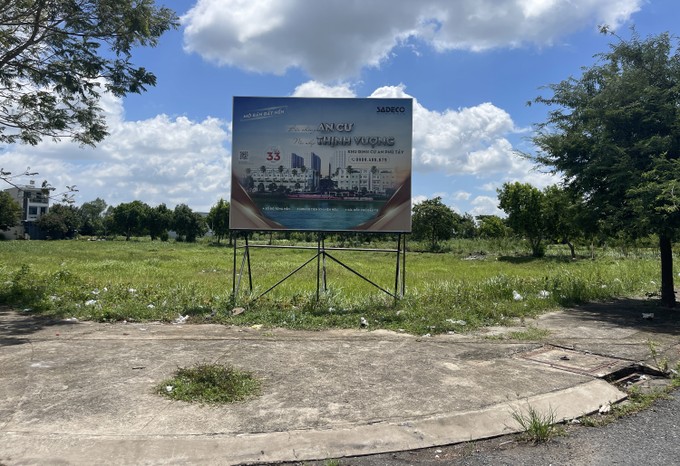Prohibition of subdivision of plots for good development of real estate sector
Under the amended Real Estate Business Law taking effect from August 1, 2024, subdividing the property into smaller plots for sale will be prohibited in 105 cities and towns, which is an increase of 81 units compared to the current regulations.

Despite the challenges in the real estate market, these new provisions aim to address certain issues.
According to Director Nguyen Hoang Hai of the Department of Housing and Real Estate Market Management under the Ministry of Construction, land plots are always in high demand and account for the majority of real estate transactions. In the first quarter of 2024, there were 97,659 successful land transactions nationwide, nearly three times the number of transactions in the apartment and individual housing segments. In reality, the real estate market has experienced fluctuations due to land speculation over the past 15 years.
Professor Dang Hung Vo, a well-known expert, believes that vague provisions in the 2013 Land Law have led to the exploitation of land subdivisions and continuous land price bubbles. The peak of land speculation occurred during the 2020-2022 period when various planning initiatives were announced at both central and local levels. Strong investment in urban infrastructure and speculative practices by land speculators further fueled the ‘land fever’.
With strong measures implemented by the Government and relevant ministries, the land fever cooled down by the end of 2022. However, the market fell into another extreme state when the land plot segment almost froze in many localities for the past two years.
According to the Ministry of Construction, the inventory of real estate in projects in the first quarter of 2024 was about 23,029 units, of which the main inventory proportion was in the segment of detached houses and land plots of projects with 10,855 land plots.
The Ministry of Construction does not currently have specific data on the number of abandoned land subdivisions and sale projects, but it is visible to see the gloomy situation in localities that experienced a land fever 2 years ago. Typically in the Southeast region, the Central Highlands region, the Central region, or the Northern region, many projects are stagnant. Many people who bought land at high prices now find it difficult to sell to others because the market has no transactions.
Although it is acknowledged that the real estate market will be somewhat affected by the regulation of prohibiting land subdivision and sale, experts are still optimistic that, in the long term, the market can develop more healthily.
According to Vice President Nguyen Van Dinh of Vietnam Real Estate Association, the new regulation is like a filter, helping to eliminate investors who only apply for land and then subdivide and sell them, without bringing economic benefits to the country; plus, it helps prevent land speculation and abandonment, leading to significant harm to the economy.
Regarding concerns that the ban on land subdivision and sale will affect people's rights, a representative of the Ministry of Construction affirmed that the new regulations only affect investors using private capital to invest in real estate, and do not affect state-owned projects that develop land funds.
The governments will spend state budgets on clearing land, organizing auctions for people to buy to build houses, and meeting the demand for housing in conditions of natural population growth.
The new regulations also do not affect the right of individuals with lawful land use rights to subdivide land for the purpose of giving, donating, inheriting, or transferring to others.
Real estate development businesses believe that although it may be challenging in the short term, long-term stability is assured. Director Vo Hong Thang of Investment at DKRA Group stated that the subdivision and sale of land have been booming in recent years in second and third-class cities. Therefore, tightening regulations on land subdivisions under the amended Real Estate Business Law will impact the entire market from North to South, with 90 percent of investors in second and third-class cities affected by the new law.
In practice, land subdivisions can be exploited, leading to risks for citizens. Many financially weak developers have taken advantage of policies to accumulate land, clear land, and build inadequate infrastructure before selling the land at high prices to residents and speculators. This practice is at the root of speculative bubbles and land fever, posing risks to the real estate market. Consequently, stricter regulations on land subdivisions are expected to filter investors and foster the development of professional real estate enterprises.
Meanwhile, CEO Nguyen Van Hau of Asian Holdings Real Estate Joint Stock Company explained that banning land subdivisions in special, first, second and third-class cities significantly affects the product segment structure. The quantity of land products from subdivisions is expected to decrease in the coming period, resulting in scarce supply and driving land prices upward. However, in the long term, this measure will contribute to a healthier real estate market and improve urban planning practices.








